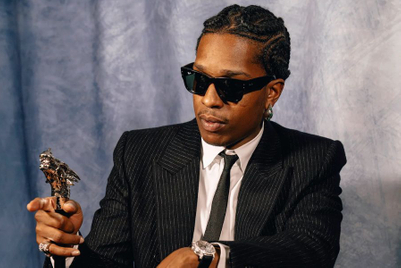
Tapestry—the luxury fashion holding company that owns Coach, Stuart Weitzman and Kate Spade, announced on Wednesday that it will buy Capri—owners of Versace, Jimmy Choo, and Michael Kors for US$8.5 billion to create a single conglomerate that combined, generates US$12 billion in annual sales.
The deal between the two American luxury companies comes as high-end retailers search for growth amid indications that Americans are cutting back on discretionary spending. Additionally, it happens as consolidation in the luxury space is on the rise, as leading players compete to acquire new brands and diversify their portfolios.
The move is the boldest attempt yet, by US-based fashion executives to create a fashion empire that can compete with the power of European heavyweights such as Louis Vuitton Moët Hennessy (LVMH) and Kering, which controls names like Gucci and Saint Laurent.
The companies said that the merger would also allow them to grow their direct-to-consumer businesses while saving US$200 million in operating and supply-chain expenses over the next three years.
The price of Tapestry's stock dropped by about 16% on Thursday. Shares of Capri increased by roughly 56%. According to Tapestry CEO Joanne Crevoiserat, the merger will establish a "powerful global luxury house."
According to CNBC, LVMH CFO Jean-Jacques Guiony stated in an earnings call that despite a slowdown in the global economy, consumer spending in China is still strong. He speculated that the end of Covid stimulus payments and Americans buying luxury goods while travelling in Europe may have contributed to the decline in entry-level product sales in the United States.
It's thought sales by Chinese shoppers and others in Asia held up the market for the owner of Louis Vuitton, Dior and other big-name brands, a trend also seen by Cartier owner Richemont amongst others.
A recent PwC analysis report found that Asia-Pacific is driving development in the global luxury goods market, with China at the forefront and ready to fully realise its potential, after a period of mediocre growth (and even a phase of contraction during Covid). According to PWC, the market for luxury products in China is once again rising, and by 2025, its share in the worldwide market is projected to be a remarkable 25%, reaching 816 billion yuan (US$112 billion).





.jpg&h=334&w=500&q=100&v=20250320&c=1)
.jpg&h=334&w=500&q=100&v=20250320&c=1)

.jpg&h=334&w=500&q=100&v=20250320&c=1)


.jpg&h=334&w=500&q=100&v=20250320&c=1)
.jpg&h=268&w=401&q=100&v=20250320&c=1)



.jpg&h=268&w=401&q=100&v=20250320&c=1)


